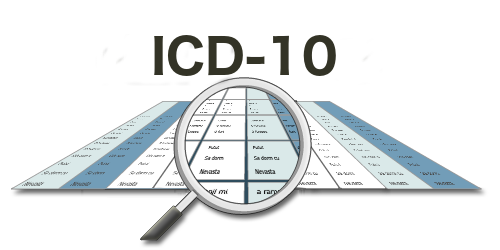Blood sugar levels are a key indicator of overall health, but even more important if you have diabetes. Every individual will have a different expected level of blood sugar based on their age, health history, and lifestyle factors.
Meticulous attention to your blood sugar levels is the only way to ensure that you are not prone to diabetes, cardiovascular disease, stroke, confusion, anxiety, weakness, sweating, vision problems, seizures, and fainting.
In today’s world irrespective of your career be it a general practitioner, nurse, seasoned healthcare provider or just enrolled in a direct entry MSN online it is vital to know how to monitor and interpret your blood sugar levels.
Contents
Blood Sugar Explained
Blood sugar commonly known as blood glucose as the name implies is the sugar or glucose content of your blood. Glucose is essential for providing energy to cells throughout the body, including brain cells.
The blood sugar level of your body is not constant, it changes throughout the day as you eat, exercise, and sleep. Hormonal changes and stress also play a pivotal role in fluctuating blood sugar levels.
It is advisable to have your blood sugar levels monitored from time to time. High blood sugar levels known as hyperglycemia and low blood sugar levels known as hypoglycemia can lead to adverse health conditions most importantly diabetes: type 1, type 2, or gestational diabetes.
Blood Sugar Levels and Diabetes
Diabetes is a deadly condition in which the body cannot regulate sugar levels on its own. Insulin, a hormone that helps the body use glucose for energy, is present in low quantities in individuals with diabetes. Sometimes the body is unable to produce insulin, which then allows glucose to accumulate in the bloodstream and lead to the damage of the eyes, kidney failure, and foot amputation.
Symptoms of diabetes include increased hunger and thirst, increased urination, particularly at night, unexplained weight loss, unexplainable tiredness, blurred vision, and slow–healing sores or wounds that appear to heal and then reopen.
Diabetes is a deadly disease that can lead to a host of complications: cardiovascular problems, such as stroke, heart attack, and blood clots, wounds, numbness, tingling, loss of feet or limbs, kidney failure, nerve damage, chronic headaches, and vision and hearing loss. In the United States, diabetes is the 7th leading cause of death according to the American Diabetes Association.
Intervention of Diabetes
Early interventions for diabetes include visiting a doctor to recommend changes in lifestyle, medications, or both. It is important to work closely with your doctor to ensure that your blood glucose level is manageable.
Monitoring Blood Sugar Levels
In type 2 diabetes, where the body produces insulin but is unable to use effectively tests including haemoglobin A1c, fasting plasma glucose test, and random plasma glucose test are of great benefit.
Haemoglobin A1c (HbA1c)
The HA1c test also called glycated hemoglobin is a standard diagnostic tool used to measure an individual’s average blood sugar levels over the past three months (90 days).
Haemoglobin is the protein in red blood cells that carries oxygen through your body. HbA1c refers to glucose and hemoglobin joined together and the amount of HbA1c formed has a direct relation to the amount of glucose in your blood.
If your HbA1c result is 6.5% (48mmol/mol) or more it implies that your glucose levels are high and prone to diabetes which requires immediate attention as per the guidelines stipulated by the World Health Organization (WHO).
Fasting Plasma Glucose Test (FPG)
FPG tests require participants to fast for at least 8 hours before the test. The expected values for normal FPG levels are between 70 mg/dL (3.9 mmol/L) and 100 mg/dL (5.6 mmol/L). Changes in lifestyle and monitoring glycemia are required if the values are between 100 mg/dL (5.6 mmol/L) and 125 mg/dL (6.9 mmol/L).
Hypoglycaemia, a condition in which a person has low fasting blood glucose concentration occurs when the FPG is below 70 mg/DL (3.9 mmol/L). This condition leads to dizziness, sweating, palpitations, and blurred vision among others.
Diabetes is diagnosed when the FPG results are 166 mg/DL (7 mmol/L) according to WHO.
Random Plasma Glucose Test (RPG)
RPG is like FPG, with the exception that in RPG the individual does not fast.
In type 1 diabetes, the body does not produce enough insulin. Measures to check for blood sugar levels in this scenario include the oral glucose tolerance test, 2-hour post glucose (2hPG), FPG, HbA1c, and antibodies test.
Oral Glucose Tolerance Test (OGTT)
The OGTT involves an overnight fast, after which 75 to 100g of oral glucose is administered to a patient. Blood samples are then obtained every 30 minutes for 2 hours. Tests are performed on each blood sample to determine whether a patient can use and store glucose normally.
A patient is considered normal when the glucose level is <140 mg/DL. In a range of 140 – 199 mg /dL that is considered as impaired glucose tolerance. Diabetes is then defined as having a glucose level of 200 mg/dL or higher.
2-hour Post Glucose (2hPG)
2hPG is like OGTT. The only difference here is that the test is done 2 hours before the test.
Test for Antibodies
Insulin antibodies such as glutamic acid decarboxylase, and insulinoma-associated 2 bring attention to the presence of proteins that target and destroy insulin. Antibodies are also responsible for destroying enzymes in insulin-producing cells.
Other tests include the zinc transport 8 which help in identifying antibodies that kill insulin-producing beta cells.
How to Test for Your Blood Sugar Levels at Home?
With the advancements in technology, it is possible to do blood sugar testing at home. The usual test kits come with a lancet for pricking your finger, test strips to collect the blood, and a machine called a glucometer which examines the blood sample and gives a reading to it.
Another available home test is the urine ketone testing. Ketones are a type of chemical that your liver produces when it breaks down fats. Ketones usually also indicate that the body has less insulin. If after the test, your ketone levels are high you must endeavor to visit your medical doctor to discuss the way forward.
How to Keep Blood Sugar Levels Stable?
Eating a healthy diet with plenty of fruits and vegetables, maintaining a healthy weight, and exercising regularly or participating in daily physical activity are key to ensuring that your blood sugar levels are stable.
Practically, it is advisable to go on a low-carbohydrate diet and consume less table sugar, white bread, white rice, soda, candy, breakfast cereals, and desserts.
Consuming more fiber-rich meals such as oatmeal, nuts, legumes, oranges, and blueberries is of good value to the body.
The introduction of vinegar into your diet is even better, as some studies have found that consuming vinegar is linked to weight loss, cholesterol reduction, blood sugar control, and antibacterial properties.
Conclusion
Blood sugar is a prominent subject matter that requires urgent attention in terms of knowing how to monitor, interpret, and keep it stable.
As the saying goes, “A healthy body is worth millions” – so endeavor to make your health a priority by being conscious of what you consume.





